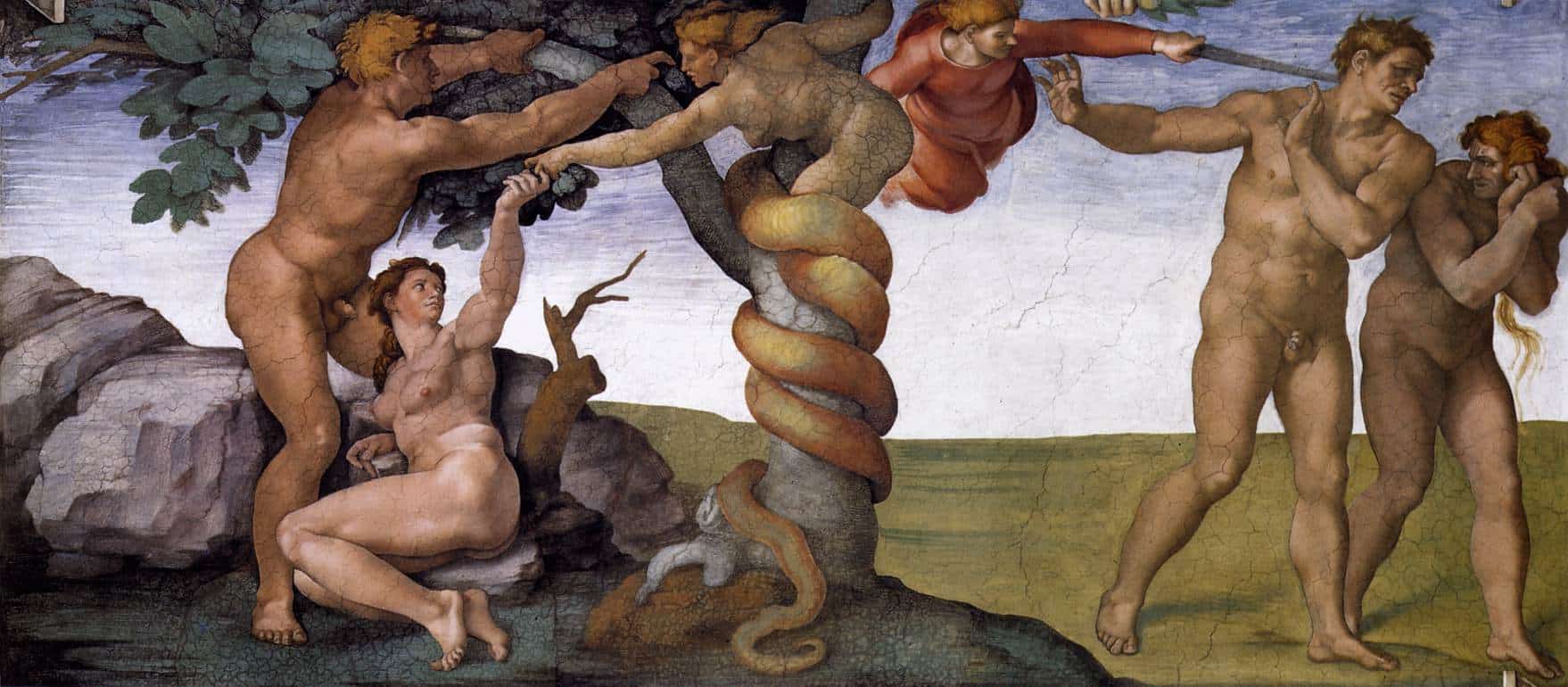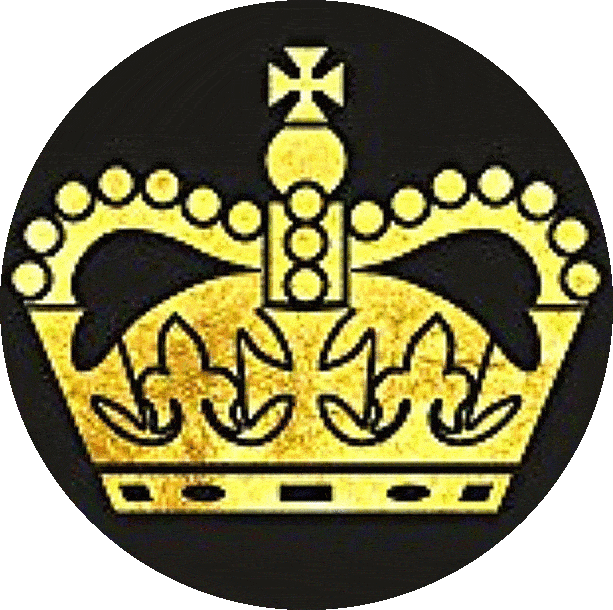The Fall of Man
Adam and Eve exercise their free will and fall prey to the serpent’s deception and their own human desires.
Now the serpent was more crafty than any other beast of the field that the Lord God had made. He said to the woman, “Did God actually say, ‘You shall not eat of any tree in the garden’?” And the woman said to the serpent, “We may eat of the fruit of the trees in the garden, but God said, ‘You shall not eat of the fruit of the tree that is in the midst of the garden, neither shall you touch it, lest you die.’”
But the serpent said to the woman, “You will not surely die. For God knows that when you eat of it your eyes will be opened, and you will be like God, knowing good and evil.” So when the woman saw that the tree was good for food, and that it was a delight to the eyes, and that the tree was to be desired to make one wise, she took of its fruit and ate, and she also gave some to her husband who was with her, and he ate. Then the eyes of both were opened, and they knew that they were naked. And they sewed fig leaves together and made themselves loincloths.

Genesis 3:22-24
Then the Lord God said, “Behold, the man has become like one of us in knowing good and evil.
Now, lest he reach out his hand and take also of the tree of life and eat, and live forever—” therefore the Lord God sent him out from the garden of Eden to work the ground from which he was taken. He drove out the man, and at the east of the garden of Eden he placed the cherubim and a flaming sword that turned every way to guard the way to the tree of life.
****
Two Trees: 1) The Tree of Life
- Trust in the Lord
- Acknowledge Him in all your ways
- Fear the Lord and turn away from evil
2) Tree of Knowledge of Good and Evil
- Rely on own understanding
- Wise in own estimation

****
Two trees, one or the other but not both. Which one will you choose?
What did Adam and Eve hope to gain when they yielded to their own desires and words of their Adversary and ate from the “tree of the knowledge of good and evil”?
Ravi Zacharias puts forward a very thoughtful response:
“The book of Genesis shows God in close fellowship with his human creation. It also gives numerous possibilities to the first creation, with just one restriction: no eating of the fruit from the tree of the knowledge of good and evil. When Adam and Eve violated that restriction, the second injunction took effect: they were not to eat the fruit from the tree of life. When you look carefully at those two boundaries, one following the other, you understand what is going on. Eating the fruit from the tree of the knowledge of good and evil basically gave humanity the power to redefine everything. God had given language, identification, and reality to humankind. He imparted to humans the power to name the animals. But essential to the created order was a moral framework that the creation was not to name or define. This was the prerogative of the Creator, not of the creation. I believe that this is what is at stake here. Does mankind have a right to define what is good and what is evil?
“Recently, while sitting in the departure area of an airport, I read an advertisement that boasted, ‘No boundaries: Just possibilities.’ A tantalizing thought indeed. Are there really no boundaries to anything? If no boundaries exist for me, does it follow that no boundaries exist for everyone else? The most fascinating thing about the created order is that God set but one stipulation for humanity. Once humanity violated that single rule and took charge, however, hundreds of laws had to be passed, because each injunction could die the death of a thousand qualifications through constant exceptions to the rule.
“You see, when you understand that God determines the moral framework and that any violation of it is to usurp God, you learn that it is not God who has stacked the deck; the issue is our own desire to take God’s place.”
The power of choice
It’s a very human tendency to want to be in charge, to make the rules, to be one’s own boss and to boss others around – in other words, to be the ruler. Behind every political move is the reality that the one who makes the rules, rules. If God is in charge, then I’m not, and if I’m in charge, then God’s not. Simple. To want to be in charge can be presented in very appealing pro-choice language, especially when it is delivered wrapped in a deceptive package of human empowerment.
Essentially God said to Adam and Eve, “If you want to live in this garden with my protection and provision, there is just one catch: I’m in charge. You can choose to to be in charge if you’d like, but then you’ll have to leave my garden and go it on your own.” Way down the road from Genesis, after God had given some clear-cut instructions to the Hebrews who had followed His voice through Moses and left slavery in Egypt on their way to true freedom, He gave this final instruction in Deuteronomy 30:19:
“I call heaven and earth to witness against you today, that I have set before you life and death, blessing and curse. Therefore choose life, that you and your offspring may live.. ”

 Kingdom Insights #5
Kingdom Insights #5 
The gift of free will. Yes, we can choose – obedience and life or disobedience and death. Are we called to be pro-choice? Yes. We are called to choose life. The alternate is sin, conceived and birthed in pride and inevitably ending in a fall that leads to corruption and death.
“The LORD has established His throne in the heavens, and His kingdom rules over all.” Psalm 103:19
